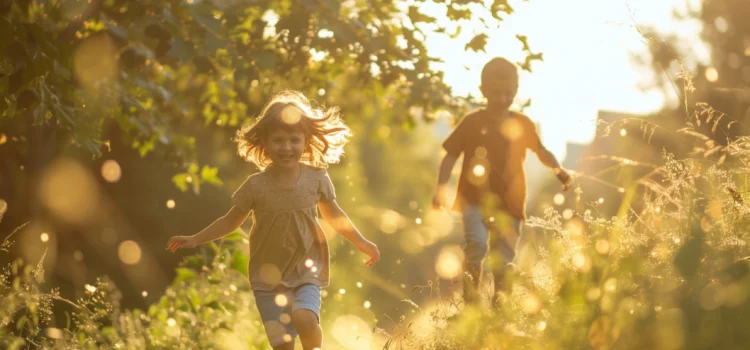

This article is an excerpt from the Shortform book guide to "The Nature Fix" by Florence Williams. Shortform has the world's best summaries and analyses of books you should be reading.
Like this article? Sign up for a free trial here.
Why should kids play outside? How can playing outside help children’s mental health?
In The Nature Fix, Florence Williams explains why kids need to spend time in nature. She goes over the benefits of spending time in nature and how it promotes healthy development.
Keep reading for an overview of Williams’ assertions.
Nature Supports Children’s Development
Why do kids need to spend time in nature? Spending time in nature has four primary benefits for humans: nature reduces stress, boosts our immune system, improves cognitive function, and improves social connectedness. All of these effects are especially beneficial to children, says Williams. In addition to these benefits, nature also provides children with opportunities for outdoor play—a healthy alternative to sedentary indoor activities—and a rich sensory environment that can help them develop motor skills and spatial awareness.
(Shortform note: Letting children play outside is good for their development, but it’s not always possible—especially when parents are working and can’t take their kids to the park. In some US states, it’s illegal to let children play outdoors unsupervised. While safety is and should be a concern, some argue that some regulations go overboard as a result of a combination of helicopter parenting and backward family policies.)
Research also suggests that time in nature may help manage ADHD in children: Williams points to the difference between those diagnosed with ADHD in the US and Finland, where three-quarters of the country is covered in forests and where nearly all people regularly spend time in nature. Most American children diagnosed with ADHD manage it with medication; on the other hand, most children in Finland do not.
(Shortform note: ADHD, or attention-deficit/hyperactivity disorder, is a neurodevelopmental condition that typically develops in childhood. While the US largely relies on medication and Finland largely relies on the outdoors, some experts assert that we need to rethink the approach to addressing ADHD. In his 1999 book Scattered Minds, Gabriel Maté writes that beyond being a biological condition, ADHD also has social and psychological roots, mainly stemming from a rupture in the parent-child bond. He thus recommends providing psychological and physical nourishment by repairing the parent-child bond. He says medication can be used as a part of treatment, but he doesn’t emphasize the need for more time outdoors.)

———End of Preview———
Like what you just read? Read the rest of the world's best book summary and analysis of Florence Williams's "The Nature Fix" at Shortform.
Here's what you'll find in our full The Nature Fix summary:
- Why humans have an innate affinity for nature
- How some countries are supporting their citizens’ health by giving them better access to nature
- Why the antidote to many of our physical and mental ailments is a good dose of the outdoors






